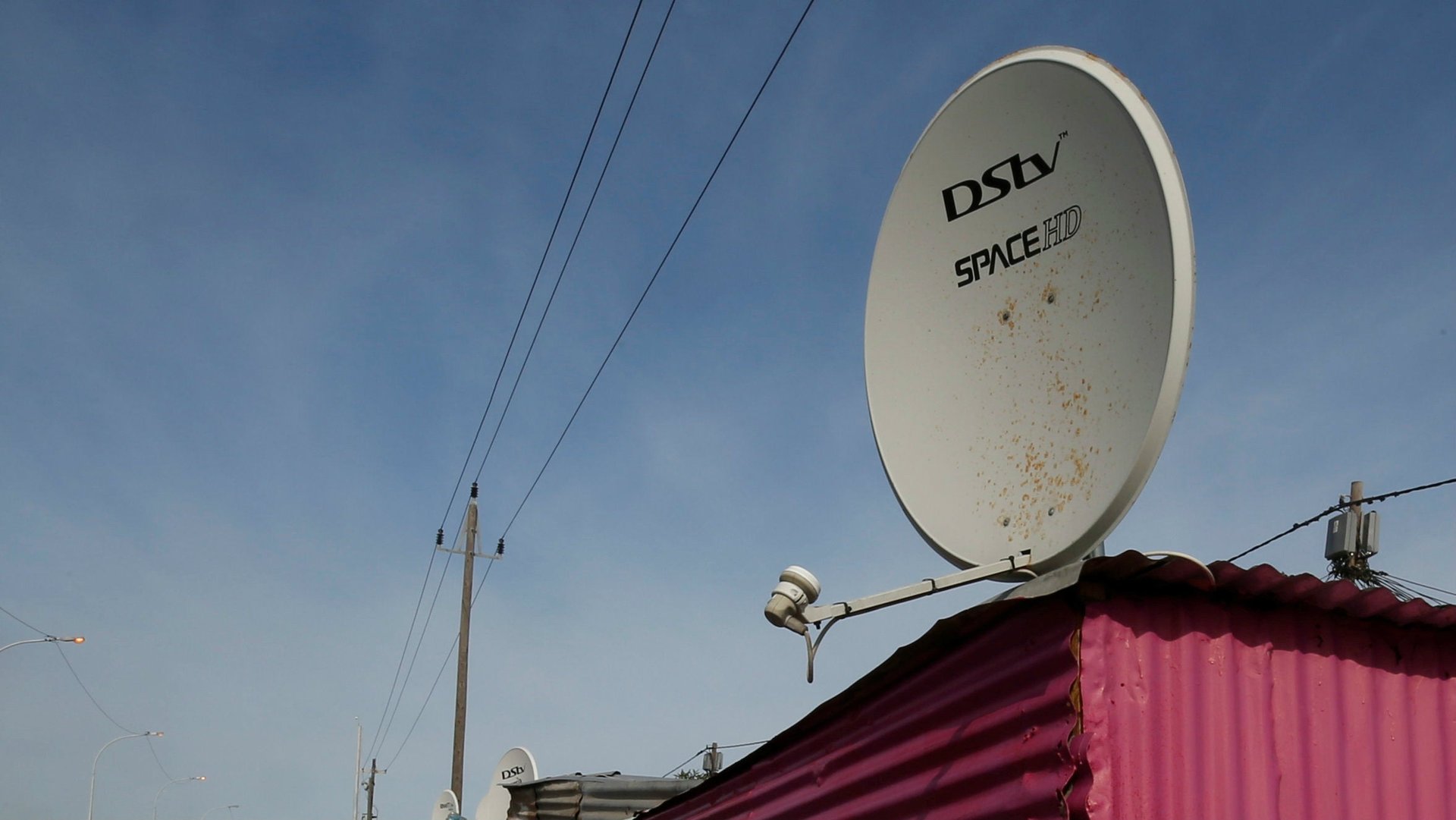Naspers is spinning off its Multichoice video business to focus on the internet
Africa’s most valuable company, Naspers will list its video entertainment business—consisting of assets like pay TV giant MultiChoice and streaming service Showmax—separately on the Johannesburg Stock Exchange next year.


Africa’s most valuable company, Naspers will list its video entertainment business—consisting of assets like pay TV giant MultiChoice and streaming service Showmax—separately on the Johannesburg Stock Exchange next year.
Cape Town-based Naspers will retain its primary listing while the new company will be named MultiChoice Group.
MultiChoice was founded in 1996 but has since grown to become the largest pay TV operator across 15 countries in Africa, a fact laid bare by its ubiquitous satellite dishes in several urban cities. Over its two decades, Multichoice’s investment in infrastructure, original content and broadcast rights for global sports have been significant. In 2016 it paid £296 million for rights to broadcast the popular English Premier League in sub-Saharan Africa from 2016 to 2019 and extended its agreement with the Premier League until 2022 last April.
It has also notably bankrolled thousands of hours of original content through dedicated Africa Magic channels which produce sitcoms for African audiences. That scale of investment has been a boon for local movie industries, including Nigeria’s hugely popular Nollywood, as it has helped trigger a shift in production from an emphasis on quantity to quality. MultiChoice has reaped significantly too with its investment proving pivotal as it has garnered and maintained market share despite challenges from competitors. The company generated $3.1 billion in revenue in the past financial year.
But MultiChoice dominance in several African countries outside South Africa has also engendered resentment from customers who claim MultiChoice’s strong hold on market share and exclusive content has led to high subscription fees. In Nigeria, some of that frustration translated into a court order stopping a planned price increase by MultiChoice.
Going forward, a core part of MultiChoice Group’s immediate focus will likely be defined by competing with Netflix and similar global giants as the media landscape continues to change thanks to the internet. MultiChoice’s calls to have Netflix regulated already suggest that it’s well aware of the threat the streaming service poses especially as a younger generation of Africans, with access to cheaper smartphones, are catching on global trends and increasingly consuming video content on mobile devices.
The move to list MultiChoice as a standalone business is part of Naspers “evolution into a global consumer internet company,” says CEO Bob van Dijk. Despite its roots in publishing dating back to 1915, Naspers have morphed into a savvy global tech company with investments spanning over 100 countries.
Its defining investment was a $32 million bet on a 46.5% stake in Tencent in 2001, then up and coming Chinese internet company. But, as Tencent has since evolved into one of the world’s most valuable companies, the bet transformed Naspers fortunes. Despite being reduced, Nasper’s stake in Tencent is valued higher than Naspers’ own market capitalization. That’s not been its only big win: Naspers’ $616 million investment in Flipkart, the Indian e-commerce company, also paid off when it sold its 11% stake for $1.6 billion in May.
But while fortune has favored its bravery elsewhere, Naspers’ has yet to find internet business success in Africa as some of its investments in classified platforms and e-commerce marketplaces on the continent have been written off.
Sign up to the Quartz Africa Weekly Brief here for news and analysis on African business, tech and innovation in your inbox.